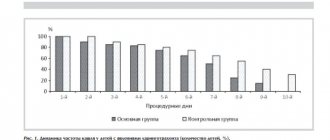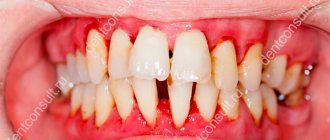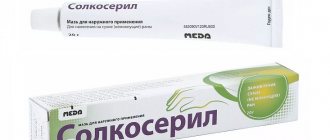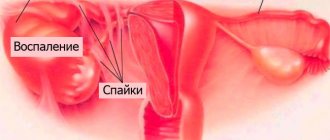Sore throat is an infectious disease that manifests itself as inflammation of the tonsils. Since this disease can affect different age categories of people of both sexes equally, and has been known for quite a long time, all areas of medicine have a huge number of means to combat it. The drug iodinol, also known as blue iodine, is widely used to combat the symptoms of angina.
The use of iodine in principle and iodinol in particular is one of the favorite means of combating sore throat in folk medicine. As for the use of such drugs in the ENT practice of traditional medicine, in this direction they are treated more carefully.
Iodinol: what helps
The iodine contained in the product provides the solution with a bactericidal effect. The simultaneous presence of 95% ethanol enhances this effect. The product is intended exclusively for topical use on affected surfaces. It is recommended to treat the edges of the wound, excluding liquid from entering exposed tissue areas. Contacting a healthy surface, Iodinol triggers blood flow activation processes, since it also has a certain irritating effect.
A small part of the substance can be absorbed into the bloodstream from the surface of the skin through small capillaries. With the bloodstream, iodine is able to travel from organ to organ. Some of it will be absorbed by the thyroid gland during such a journey. Excretion from the body occurs through the kidneys, liver and intestines.
Iodinol is used for:
- small abrasions;
- injuries;
- myalgia;
- infectious lesions of the skin.
Apply a thin layer to the skin, not generously, using a cotton swab or cotton swab. It should be remembered that the product has a brown tint, which will remain as pigmentation on the body.
Iodinol for rinsing
In their practice, otolaryngologists often use Iodinol as a rinse. You just need to keep in mind that rinsing is not carried out with a pure solution, but with a prepared mixture of several drops. This procedure ensures the treatment of the tonsils. For chronic tonsillitis of any etiology, such rinsing allows you to relieve the severity of inflammation and wash off the pathogen from the surface of the porous tissue, disinfecting the surface of the tonsils for a while.
Additionally, iodine heating procedures may be prescribed. They involve applying the solution directly to the tonsils. Iodine, irritating the surface of the glands, activates blood flow in the capillaries and vessels, due to which the local temperature rises. Harmful microorganisms cannot multiply in such an environment, which contributes to a speedy recovery.
In addition to treating tonsils, Iodinol can be used as a component for preparing a solution for rinsing the nose. This product is also used to disinfect the walls of the respiratory tract and wash away most of the germs from them.
Signs of the disease
A disease such as tonsillitis is an acute form of manifestation of an infectious disease called tonsillitis, which, in chronic form, can be observed in people for years. After a person is infected with an acute form of tonsillitis, an incubation period passes, the duration of which usually ranges from 2 to 5 days, and then the symptoms of the disease immediately begin to appear. Signs of the development of the disease in the human body are very difficult to ignore, since they are all quite obvious. Symptoms of a sore throat include:
significant increase in body temperature (up to 39-40 C); the appearance of inflammation and redness on the tonsils; sharp pain in the throat when swallowing; enlarged lymph nodes, which cause pain when palpated; headache; chills, fever; general weakness of the body.
Additional signs of the disease may also include deterioration in the functioning of the gastrointestinal tract. Namely: abdominal pain (intestinal area), nausea and vomiting, diarrhea.
There are also several symptoms characteristic only of a certain type of sore throat. The classification of the disease distinguishes three types of sore throat: fungal, viral and bacterial. This division is made on the basis of the causes that provoked the disease. A distinctive feature when signs of fungal tonsillitis appear is a milky coating on the tonsils. When a viral form of sore throat develops in the body, the body temperature practically does not increase. As for bacterial tonsillitis, when it occurs, ulcers form on the surface of the tonsils, which can be filled with pus (purulent tonsillitis).
Iodinol: instructions for use
Iodinol is not taken orally. This product is for local external use only. It is necessary to follow the rules for treating wounds:
- Apply the product only to the edges of the wound.
- Avoid getting the solution on areas of the body that are bare of skin, as well as inside cuts and deep wounds.
- When preparing a solution for rinsing the nasopharynx, it is important to adhere to the concentration of the substance recommended by the doctor.
- Home application of Iodinol on the tonsils should be limited to three times a day.
Exceeding dosages will certainly lead to burns. If the doctor recommended preparing a solution for rinsing the nose from 10 drops of Iodinol and a glass of water, this means that every extra drop can cause the nasal mucosa to lose its ability to moisturize and warm the inhaled air. Crusts, inflammations and ulcers will form.
Applying iodine to an open wound will aggravate the situation and may provoke a painful shock, since in addition to iodine molecules, the solution contains 95% alcohol. It will be an additional source of chemical burns. In places where the skin is already damaged and nerve endings are exposed, the ingress of such an aggressive solution will only aggravate the patient’s condition.
Contraindications
The use of Iodinol is contraindicated for persons with individual iodine intolerance. It is also worth considering the susceptibility of the thyroid gland to iodine molecules. She needs it, and a deficiency of iodine molecules can lead to dysfunction of the organ that produces hormones. But it is important to remember that excess iodine is not beneficial, since it will also affect hormonal levels and the health of the thyroid gland.
Pregnant women should refrain from using any medications, even topically, without consulting a doctor, including Iodinol. If there is an inflammatory process in the tonsils, nasal passages and ears, you should not self-medicate, but immediately consult your local doctor.
Reviews
“ My weak point in terms of health is my throat. I am a fairly resilient and still young man who has been engaged in physical labor all my life and am not afraid of stress on the body, but at the slightest hypothermia I develop a sore throat.
The doctor says that this is a chronic form , which most likely developed in my youth, and in order to quickly eliminate the symptoms, in addition to antibiotics, he also prescribes me a course of rinses, including the use of iodinol .
For me, this remedy does not shorten the duration of treatment, but already in the first two days with this medicine my sore throat goes away , otherwise it is completely impossible to swallow food.”
Artem Sklyarsky, Norilsk.
“When my son was 5 years old, he fell ill with a sore throat , and since, given the severe form of the disease, the doctor recommended inpatient treatment, I had to go to the hospital with him.
During the treatment, several remedies, sprays and ointments were prescribed, including iodinol solution .
It was then that I taught the child how to gargle correctly, but this procedure still had to be performed under the supervision of a doctor or at least a nurse, since small children often swallow such medications.
But everything went smoothly for us: we gargled for four days, after which the redness and swelling subsided , and after another three days we were discharged home, and treatment continued on an outpatient basis.”
Evgenia Kovalskaya, Perm.
Iodinol: price
The product is sold in glass bottles of 50 ml or 100 ml. Some manufacturers have equipped their bottles with spray nozzles. It is worth keeping in mind that the presence of such a sprayer does not mean that the product is ready for application to the oral cavity or nasal mucous membranes. The nozzle makes it easier to treat the skin area around the wound. Only the presence of a separate footnote in the instructions attached to the bottle can indicate the concentration of the active substance and the permissible use of the solution unchanged for rinsing.
You can buy a 50 ml bottle without a spray nozzle for 30 rubles. Depending on the name of the manufacturer, the price may vary. The presence of a spray bottle affects pricing. With it, a bottle of the same volume will cost from 100 rubles.
Iodinol solution for external use 100ml No. 1
Name
Iodinol solution dnar.prim.in bottle 100ml in pack No. 1
Description
A dark blue liquid with a characteristic odor, foaming when shaken. Traces of foaming are allowed on the unfilled part of the bottle.
Compound
One bottle contains: active substance – iodine – 100 mg; excipients – potassium iodide, polyvinyl alcohol, purified water.
Pharmacotherapeutic group
Antiseptic and disinfectants. ATX code - D08AG03.
pharmachologic effect
Pharmacodynamics Iodinol (iodine-polyvinyl alcohol, iodine-polyvinyl alcohol) is the product of the addition of molecular (crystalline) iodine to polyvinyl alcohol. Iodinol is low toxic. Has antiseptic properties. When applied to large surfaces of the skin, iodine has a resorptive effect: it actively affects metabolism, enhances dissimilation processes, participates in the synthesis of thyroxine, and has a proteolytic effect; polyvinyl alcohol is a high-molecular compound, the content of which in iodinol slows down the release of iodine and prolongs its interaction with body tissues; also reduces the irritating effect of iodine on tissue. Iodine has a bactericidal effect on both gram-positive and gram-negative flora, as well as pathogenic fungi and yeasts, most actively on streptococcal flora and E. coli. Staphylococci are more resistant to the action of iodinol, however, with long-term use, their elimination is observed in 80% of cases. Pseudomonas aeruginosa is resistant to the use of Iodinol. Pharmacokinetics Upon contact with skin or mucous membranes, 30% is converted into iodides, and the rest into active iodine. Partially absorbed. The absorbed part penetrates tissues and organs and is selectively absorbed by the thyroid gland. It is secreted mainly by the kidneys, intestines, sweat and mammary glands.
Indications for use
Chronic tonsillitis, chronic purulent otitis, chronic atrophic rhinitis (ozena), purulent wounds, trophic and varicose skin ulcers, thermal and chemical burns of I - II degree.
Contraindications
Hypersensitivity to the components of the drug, thyrotoxicosis, pregnancy and lactation, diseases of the thyroid gland (nodular colloid goiter, endemic goiter and Hashimoto's thyroiditis), Dühring's dermatitis herpetiformis, simultaneous therapy with radioactive iodine, children under 6 years of age (no experience with use).
Precautionary measures
Use with caution in patients under 18 years of age. Do not allow the drug to get into your eyes. If this happens, the eyes should be rinsed with plenty of water or 1% sodium thiosulfate solution. In persons with renal and liver failure, as well as in persons over the age of 70 years, Iodinol should be used with extreme caution under the control of thyroid function (once every 2 weeks).
Effect on laboratory parameters
During treatment with Iodinol, it is possible to obtain false results in determining the level of thyroid hormones and protein-bound iodine in the blood plasma.
Impact on the ability to drive vehicles and operate machinery
Currently, there is no evidence that Iodinol affects the ability to drive vehicles and operate machinery.
Pregnancy and lactation
Pregnancy The amount of iodine that can be absorbed through the use of this drug is a priori low. However, iodine-based drugs should not be prescribed during pregnancy, especially in the third trimester, due to the risk of hypothyroidism in the fetus and goiter in the newborn. Therefore, as a precaution, use of this drug should be avoided during pregnancy. Lactation Iodine is excreted in mother's milk, so use of the drug should be avoided during breastfeeding.
Directions for use and doses
In case of chronic tonsillitis, the lacunae of the tonsils and supratonsillar space are washed. A total of 4-5 washes with an interval of 2-3 days. Single dose 50 ml. For purulent otitis: daily instillation of 5-8 drops of Iodinol (in the case of mesotympanitis) or washing the attic (in case of epitympanitis). The course of treatment is 2–4 weeks. In the treatment of atrophic rhinitis (ozena), after preliminary softening and removal of crusts, the nasal cavity and pharynx are irrigated with Iodinol 2-3 times a week for 2-3 months. For trophic and varicose ulcers, pre-wash the skin with warm water and soap, and lubricate the area around the ulcer with zinc ointment. A bandage of three layers of gauze moistened with Iodinol is applied to the surface of the ulcer. Dressings are carried out 1-2 times a day (as the bandage becomes discolored), while the gauze lying on the surface of the ulcer is not removed, but is again soaked in Iodinol. 4–7 days after a general or local bath, the indicated treatment continues. For purulent wounds and infected burns, apply a loose gauze bandage soaked in the drug and changed periodically, as needed. The wound cavities are washed with Iodinol, after which it is introduced into the cavity on a tampon.
Overdose
Symptoms for external use: phenomena of iodism - skin rashes, rhinitis, lacrimation, hypersalivation, rhinorrhea, bronchorrhea, swelling of the mucous membranes. Treatment: drug withdrawal, symptomatic therapy. Symptoms of accidental or intentional use of Iodinol orally: phenomena of iodism - metallic taste in the mouth, increased salivation, increased sweating, burning or pain in the throat and mouth, irritation of the eyes and swelling of the eyelids, nasopharynx, larynx, difficulty breathing (pulmonary edema), skin reactions, gastrointestinal disorders (nausea, vomiting, intestinal cramps and diarrhea). Tachycardia, metabolic acidosis, hypernatremia, and renal failure may develop. Treatment: gastric lavage, first with 1% sodium thiosulfate solution, then with water; symptomatic therapy.
Interaction with other drugs
The drug is not compatible with disinfectants containing mercury compounds, pharmaceutically incompatible with essential oils, ammonia solutions, antiseptics from the group of alkalis and oxidizing agents. Changes the effectiveness of medications affecting thyroid function. Iodinol can be combined with physiotherapeutic treatment, and, if necessary, with antibiotics. Absorption of iodine from Iodinol may affect thyroid function. An alkaline or acidic environment, the presence of fat, pus, and blood weaken the antiseptic activity.
Side effect
Allergic reactions (skin itching). In persons with idiosyncrasy to iodine, phenomena of iodism may be observed in the form of skin rashes or rhinitis, itching, swelling and irritation of the mucous membranes (lacrimation, hypersalivation, rhinorrhea, bronchorrhea), which does not require any special measures or cessation of treatment. Thyroid disorders: goiter, hypothyroidism or hyperthyroidism. Metabolic acidosis, hypernatremia and impaired renal function (when applied to a large area of mucous membranes or in persons with extensive burns).
Package
100 ml in glass bottles. Each bottle along with the insert leaflet is placed in a cardboard pack (package No. 1).
Storage conditions
In a place protected from light, at a temperature not exceeding 25 ° C. Do not freeze. Keep out of the reach of children.
Best before date
3 years. Do not use the medicine after the expiration date.
Conditions for dispensing from pharmacies
Over the counter.









